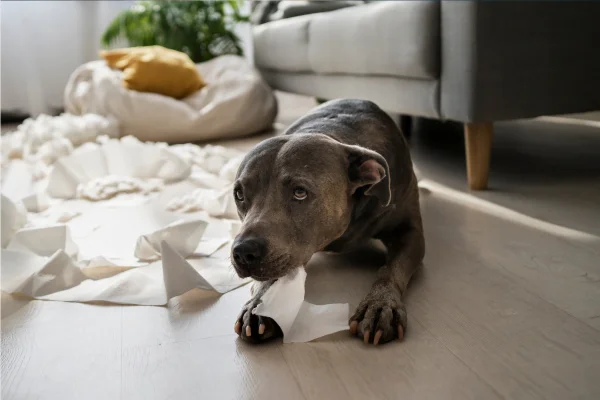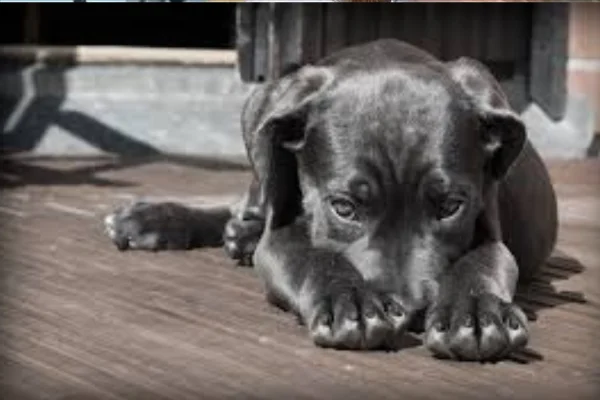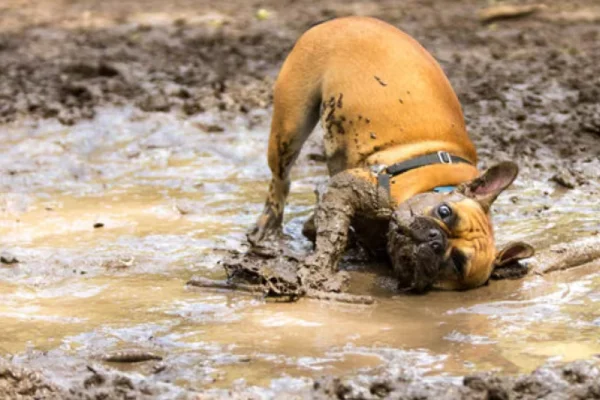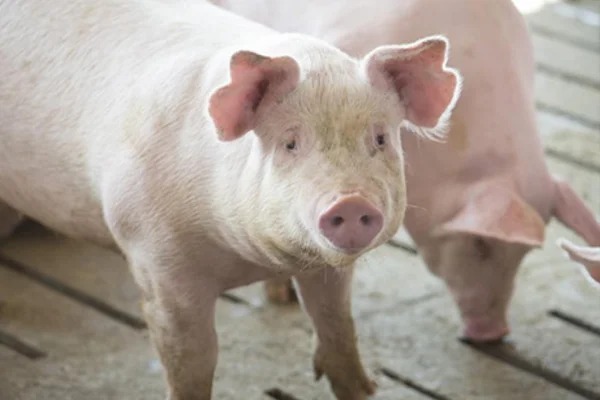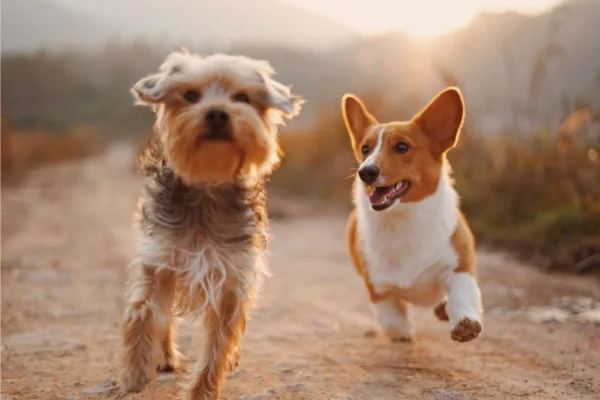My Dog Has Diarrhea: Causes, Treatments and Care
If you're facing the worrying situation of "My dog has diarrhea", know that you're not alone. Diarrhea is a common problem in dogs and can be caused by a variety of reasons. In this article, we'll look at the possible causes of canine diarrhea, the recommended treatments and the essential care to ensure your faithful friend's recovery.
Introduction
Just like humans, dogs can also suffer from diarrhea at some point in their lives. Diarrhoea in dogs is characterized by loose and frequent stools, and can be accompanied by other symptoms such as vomiting and lack of appetite. Although diarrhea can be uncomfortable for your dog and for you, in most cases it is not a major cause for concern and can be successfully treated at home.
Common Causes of Diarrhea in Dogs
There are several reasons why a dog may develop diarrhea. Some of the most common causes include:
Contents
Inadequate nutrition
A sudden change in your dog's diet or eating spoiled food can lead to irritation of the gastrointestinal tract, resulting in diarrhea.
Food intolerance
Just like humans, dogs can also be intolerant of certain foods. Dairy and fatty foods, for example, can cause diarrhea in sensitive dogs.
Infections
Bacterial, viral or parasitic infections, such as parvovirus or giardia, are common causes of diarrhea in dogs and may require veterinary treatment.
Stress
Stressful situations, such as changes in routine, travel or the arrival of a new family member, can trigger episodes of diarrhea in dogs.
Foreign body ingestion
Curious dogs can ingest foreign objects, such as small toys or pieces of fabric, causing intestinal irritation and diarrhea.
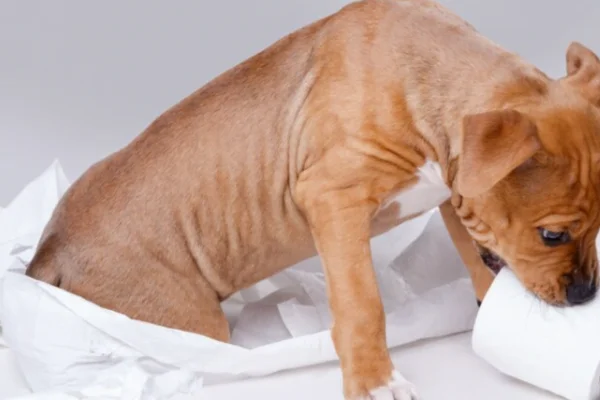
Preventive Care to Avoid Diarrhea in Dogs
In addition to knowing how to deal with diarrhea when it occurs, it's also important to adopt preventive measures to maintain your dog's intestinal health. Here are some tips for avoiding episodes of diarrhea:
Keep Food Consistent
Sudden changes in diet can cause gastrointestinal stress in dogs. Keep your dog's diet consistent and introduce new foods gradually.
Choose Quality Food
Choose high-quality food that is suitable for your dog's age and size. Consult a vet for specific recommendations.
Avoid offering human food
Certain human foods can be harmful to dogs, causing diarrhea and other problems. Avoid giving your dog leftovers from the table.
Keep your vaccinations up to date
Keeping your dog's vaccinations up to date helps prevent serious viral infections that can cause diarrhea.
Avoid Access to Rubbish and Strange Items
Dogs love to explore, but ingesting foreign objects can lead to gastrointestinal problems. Keep your dog's environment safe and free of dangerous items.
Minimize Stress
Excessive stress can trigger episodes of diarrhea. Avoid stressful situations and provide a calm environment for your dog.
Treatment and Care: My Dog Has Diarrhea
When you notice that your dog has diarrhea, it's important to take appropriate measures to help it recover. Here are some useful tips:
Temporary Fasting
If your dog has mild diarrhea, it is advisable to offer a temporary fast of 12 to 24 hours to allow the gastrointestinal tract to rest.
Hydration
Diarrhea can cause dehydration in dogs, so it is essential to ensure that your furry friend has access to fresh water at all times.
Light diet
After fasting, introduce a light, easily digestible diet, such as boiled chicken without the skin and rice. Avoid high-fat or spicy foods.
Monitoring
Observe your dog's behavior and the consistency of the stool. If the diarrhea persists for more than 24 hours or worsens, consult a veterinarian.
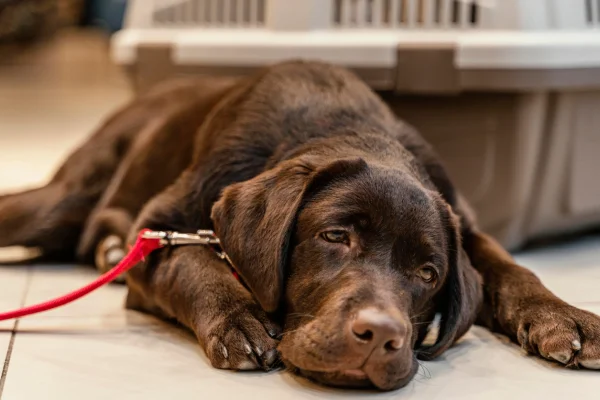
My Dog Has Diarrhea
Frequently Asked Questions (FAQs)
What is the normal duration of diarrhea in dogs?
Mild diarrhea in dogs usually lasts 1 to 2 days. If it persists for longer, it is advisable to seek veterinary advice.
Can I offer human remedies to treat my dog's diarrhea?
It is not recommended to offer human medicines without the advice of a vet, as some medicines can be harmful to dogs.
When should I take my dog to the vet?
If the diarrhea persists for more than 24 hours, is accompanied by vomiting, blood in the stool or other worrying symptoms, it is important to consult a veterinarian.
Conclusion: My Dog Has Diarrhea
Diarrhea in dogs is a common situation, but one that can be successfully treated with the right care. Remember that if diarrhea persists or worsens, it's always best to seek veterinary advice to ensure your furry friend's health. With the right diet, adequate hydration and loving attention, your dog will be back to his healthy, lively self in no time.
Did you like the tips in this article? Share it with other dog owners so they too know how to deal with dog diarrhea!
If you liked our article, please click on the like button.
Thanks for stopping by, check out our other work too
https://vettopbr.com/tosse-em-caes/

